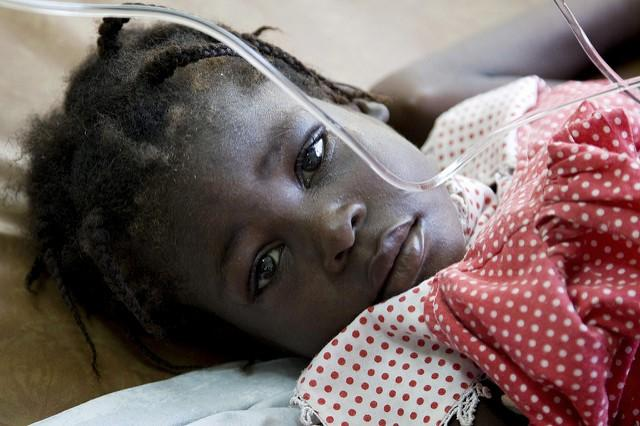With progress falling far short of goals, health disparities are cutting lives short by decades in both high- and low-income countries, the World Health Organization (WHO) contends in a new report on the social determinants of health equity.
For example, on average, people in the country with the lowest healthy life expectancy live 33 years shorter than those born in the country with the highest life expectancy, and children born in the poorer countries are 13 times more likely to die before age 5 years than those in wealthier countries.
Inadequate progress since 2008
The report is the first of its kind published since 2008, when the WHO Commission on Social Determinants of Health released its final report delineating 2040 targets for bridging gaps in life expectancy and child and maternal death between and within countries.
The social determinants of health equity... have a powerful influence on these avoidable and unjust health gaps.
The 2008 report concluded that "social injustice is killing people on a grand scale" and "a toxic combination of poor policies and programmes, unfair economic arrangements, and bad governance" contributes to the disparities.
The authors note that health and life expectancy vary by country, community, educational attainment, race, income, sex, and disability status. "The social determinants of health equity—that is, the conditions in which people are born, grow, live, work, and age, and people's access to power, money, and resources—have a powerful influence on these avoidable and unjust health gaps," they wrote.
The report is based on input from scientific and policy advisory groups, commissioned papers and evidence reviews, internal expertise from the three levels of the WHO, and consultation with member states through the executive board and World Health Assembly. It details insufficient progress toward meeting the Commission on Social Determinants of Health targets for health equity and makes 14 recommendations for action in four areas.
COVID-19 disrupted work
Although there has been progress since the 2008 report, it has been insufficient. For example, around the world, the death rate of children younger than 5 years was halved from 2000 to 2023 but is falling far short of the target of a 90% reduction by 2040. "Low-income countries saw the fastest relative decline, but in 2023, the rate of under-five mortality in low-income countries was still 13 times higher than in high-income countries," the report said.
Between countries, inequity in COVID-19 outcomes was exacerbated by inequitable access to diagnostics, vaccines and other countermeasures.
Global maternal death rates fell 40% from 2000 to 2023, from 328 to 197 deaths per 100,000 live births, still far from than the goal of 16 deaths per 100,000 live births by 2040. Women in disadvantaged or marginalized groups are still far more likely to die from pregnancy-related causes than their more advantaged peers in countries at all income levels.
These disparities were exacerbated by the COVID-19 pandemic, the authors said.
"Between countries, inequity in COVID-19 outcomes was exacerbated by inequitable access to diagnostics, vaccines and other countermeasures," they wrote. "Many low- and middle-income countries emerged with large amounts of sovereign debt, reducing the fiscal space for investment in necessary social and physical infrastructure to improve health, and resulting in large backlogs in health services."
14 recommendations in 4 areas
The four focus areas outlined in the report are: (1) Addressing economic inequality and investing in social infrastructure and universal public services, (2) overcoming structural discrimination, (3) managing the challenges and opportunities posed by climate change and digital transformation to systematically promote health equity, and (4) instituting governance arrangements to maximize the coherence and effects of action.
The WHO's 14 recommendations are:
- Tackling economic inequality and funding universal public services
- Championing development financing and investment to promote health equity
- Assessing and addressing the commercial determinants of health
- Expanding coverage of universal social protection systems
- Taking action against structural discrimination
- Safeguarding the social determinants of health equity during emergencies, migration, and conflict
- Monitoring social determinants of health equity
- Strengthening the focus on social determinants in health systems and policy platforms
- Building and retaining a healthcare workforce that can deliver equity
- Attaining universal healthcare coverage through progressive health financing and primary care
- Supporting community engagement and civil society
- Equipping local governments to reduce health inequities
- Ensuring that digital transformation promotes health equity
- Articulating and accelerating the health equity benefits of action to stem climate change and preserve biodiversity
"Our world is an unequal one," WHO Director-General Tedros Adhanom Ghebreyesus, PhD, said in a WHO news release. "But change for the better is possible."



















